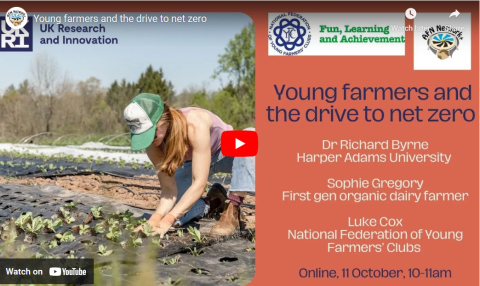For those who are farmers, land managers and food producers, what challenges will they face? What opportunities might there be? What skills and education will they need? How will rural and farming careers need to be reimagined? How do young people feel about this, and what are their concerns? Dr Richard Byrne, senior lecturer at Harper Adams University and manager of the Rural Resilience Research Group, lead us through some of these questions, challenge the idea of what being a ‘farmer’ will mean in 2050, and how entrepreneurial young people today will be able to find opportunities in the years ahead. Sophie Gregory, first generation organic dairy farmer, and Luke Cox, vice chair of the National Federation of Young Farmers’ Clubs (NFYFC), young farmer and agricultural professional himself, also outline their hopes, ambitions, worries, and thoughts on the future of farming for their generation.
This was a joint webinar between AFN Network+ and the NFYFC, held in National Young Farmers’ Week 2023.


